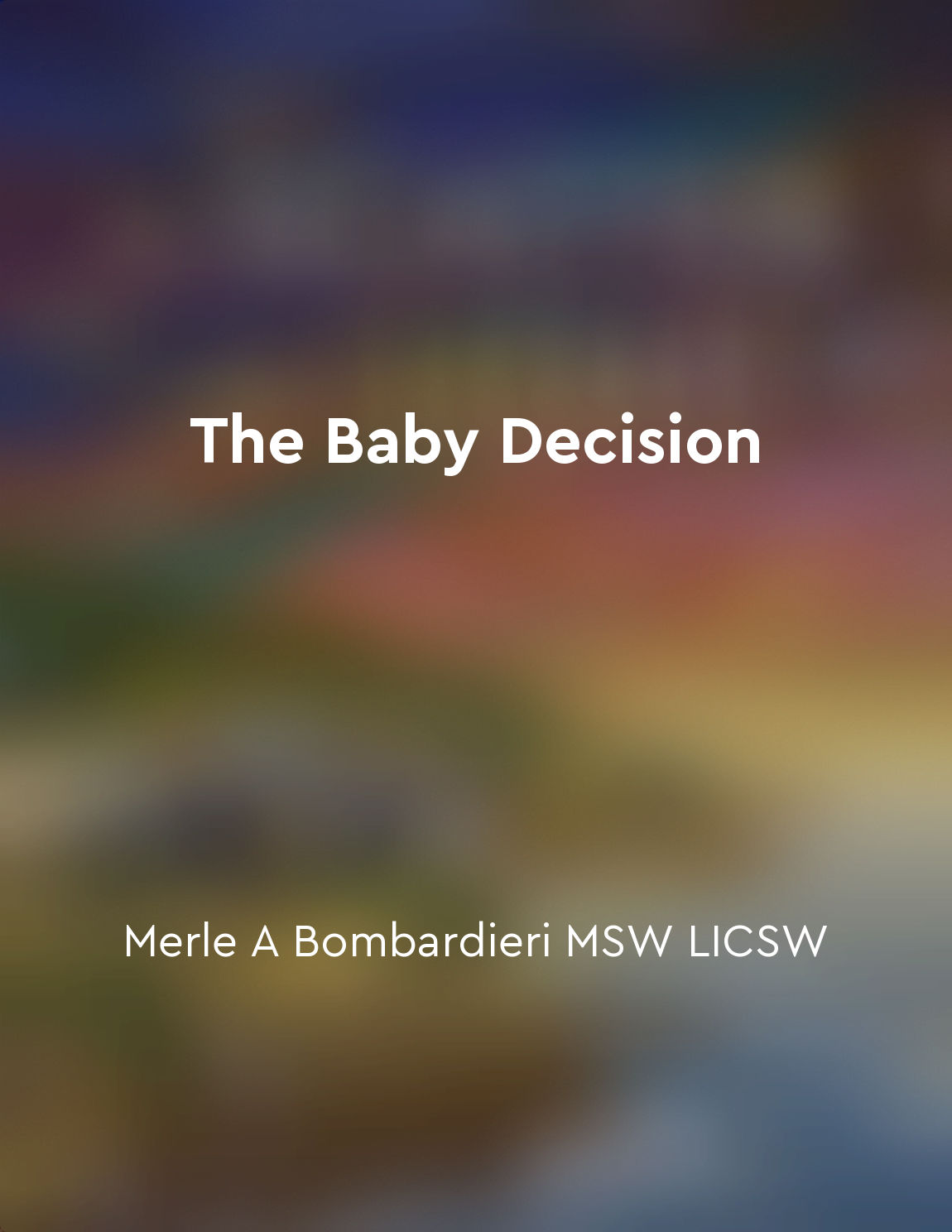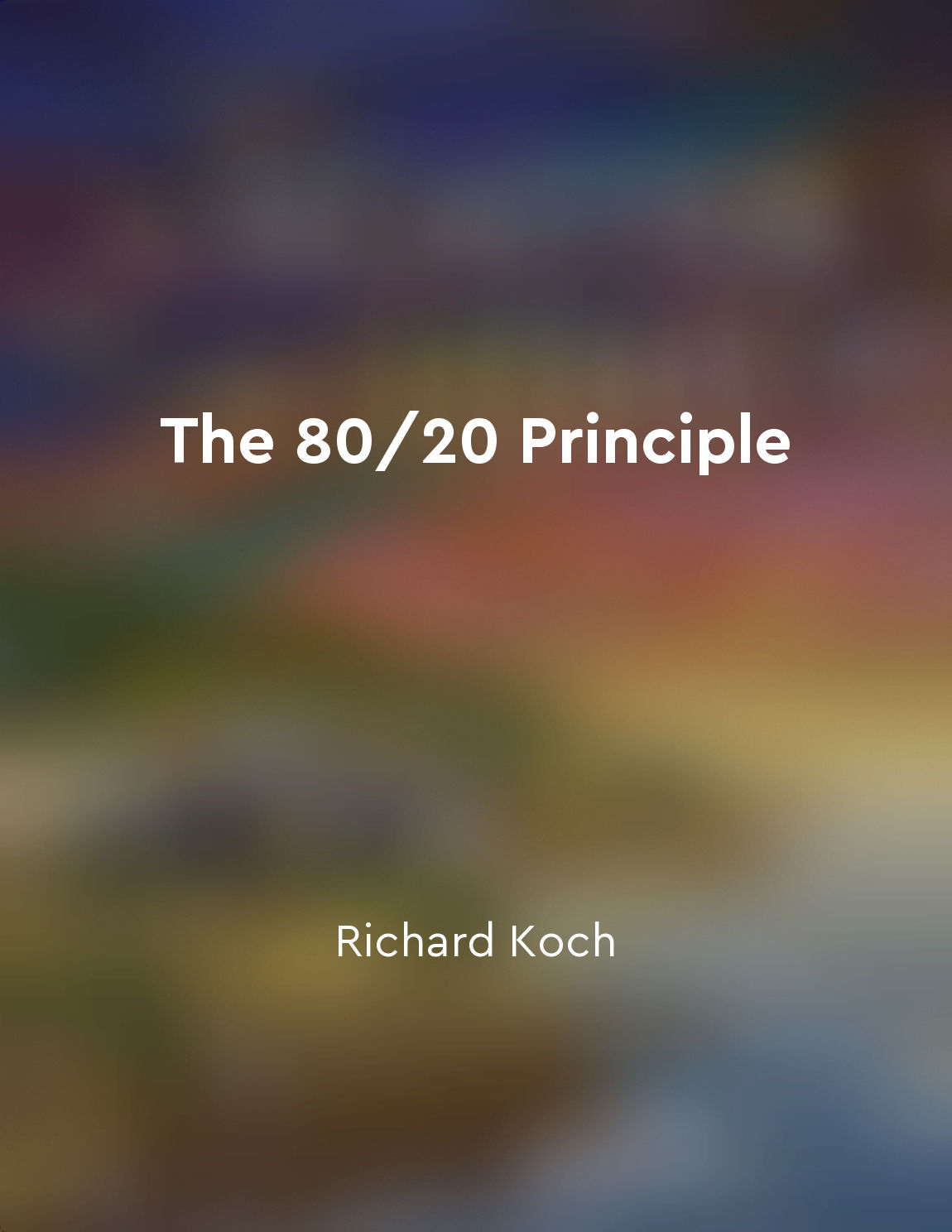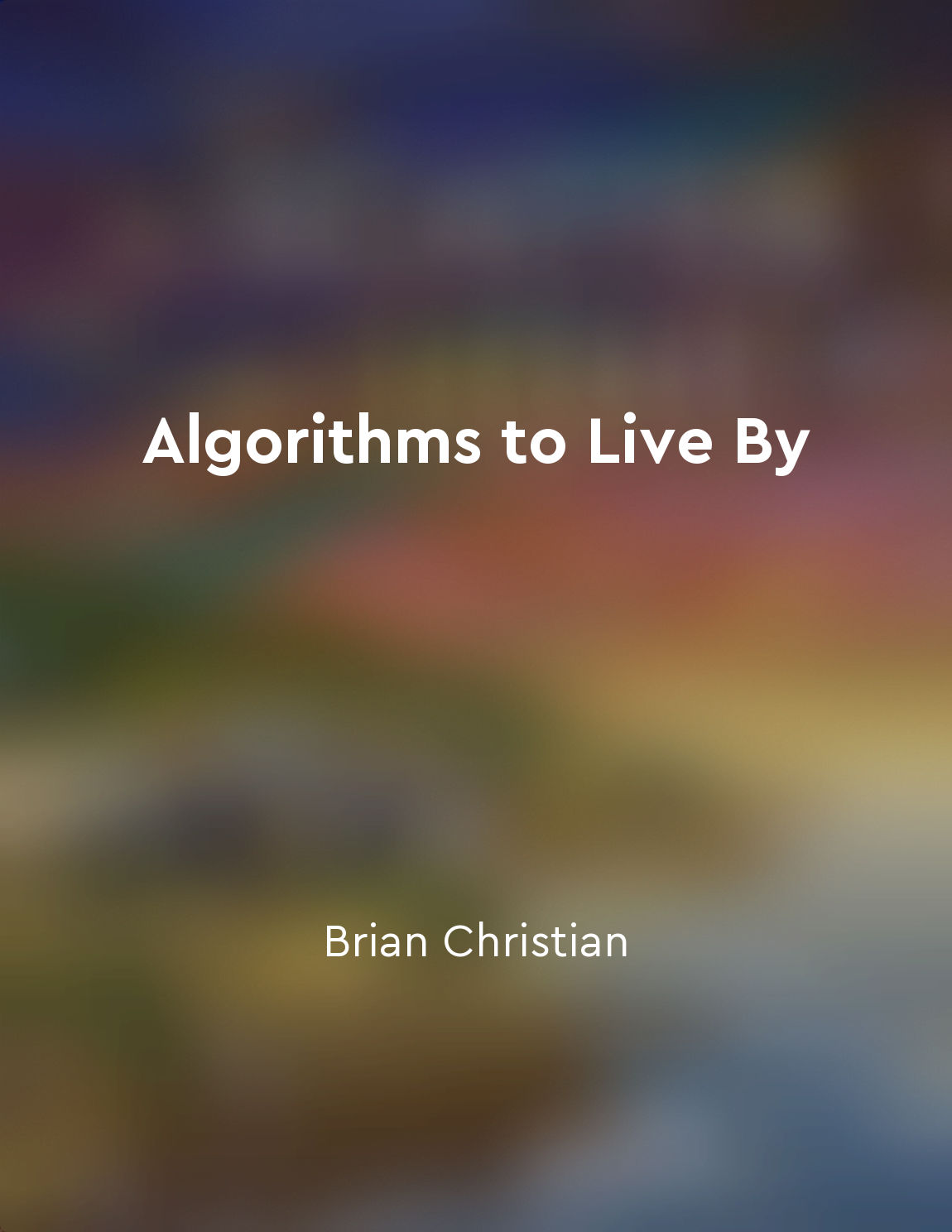Optimal stopping helps us decide when to settle for something and when to keep looking from "summary" of Algorithms to Live By by Brian Christian,Tom Griffiths
Imagine you're looking for the perfect apartment in a bustling city. You start your search and visit a few places, but none of them seem quite right. At what point do you decide to settle for the best option you've seen so far? This dilemma is at the heart of the concept of optimal stopping. It's about knowing when to stop searching and when to keep looking. Optimal stopping is a principle derived from mathematics and computer science that can be applied to various real-life situations. In the case of apartment hunting, it helps us make decisions about when to settle for a place that meets most of our criteria, even if it's not perfect. But how do we determine when "good enough" is actually good enough? One approach is the 37% rule, which suggests that we should spend the first 37% of our allotted time (or options) exploring and gathering information without committing. After that point, we should be prepared to make a decision and settle for the next best option that comes along that is better than anything we've seen before. This rule strikes a balance between being too hasty in our decisions and being overly cautious. Optimal stopping is not just about making decisions; it's also about managing risks and uncertainties. It acknowledges that we can never be certain that the option we choose is the absolute best one available. But by using algorithms like the 37% rule, we can increase our chances of finding a satisfactory outcome without endlessly searching for the elusive perfect solution.- Optimal stopping is a tool that helps us navigate the complexity of decision-making in a world full of choices. It encourages us to weigh the pros and cons, consider our priorities, and ultimately make a choice that aligns with our goals and values. So, the next time you're faced with a decision, remember the principle of optimal stopping and trust that it can guide you towards making a well-informed choice.
Similar Posts
Seek feedback from others to gain new perspectives
In order to broaden our understanding and gain new insights, it is essential to seek feedback from others. This practice allows...
Strive for continuous improvement and evolution
The concept of continuous improvement and evolution is crucial in achieving success and reaching your full potential. By consta...
Building mental models helps in making better decisions
Building mental models is about creating an organized way to make sense of the world. By constructing mental models, we can bet...
Stay true to your values
Staying true to your values is an essential principle that should guide every decision you make in your personal and profession...
Liking: people say yes to those they know and like
The principle of liking is a powerful tool in the art of persuasion. People are more likely to say yes to those they know and l...

Irrationality can stem from conflicting desires or beliefs
Irrationality can arise when an individual holds conflicting desires or beliefs that cannot be reconciled. These conflicting de...
Knowing what we want makes choosing easier
Knowing what we want can simplify the decision-making process by narrowing down our options. When we have a clear understanding...

Seek feedback from trusted friends and family members
When facing a decision as big as whether or not to have a baby, it can be incredibly helpful to seek feedback from those closes...

Simplify and streamline processes to increase efficiency
To achieve higher efficiency, it is crucial to simplify and streamline processes. This involves removing unnecessary steps, eli...
Overconfidence can lead to errors
One of the reasons why we make mistakes is our tendency to be overconfident in our abilities. This overconfidence can lead us t...


